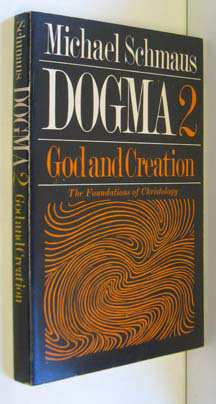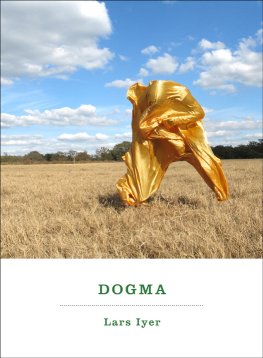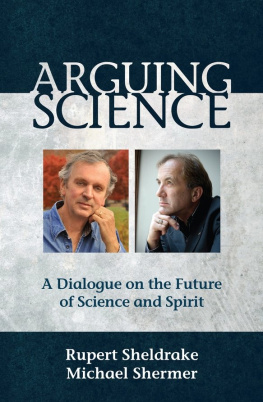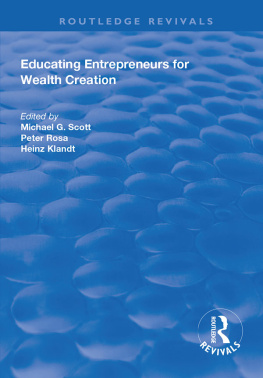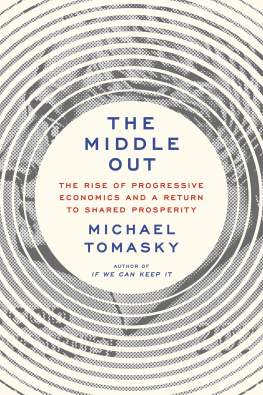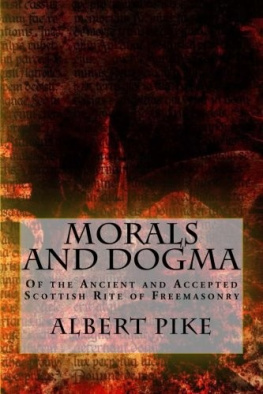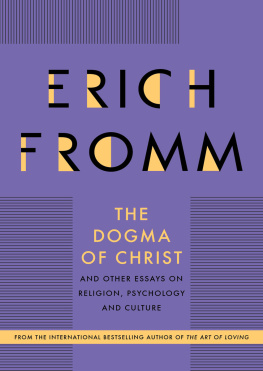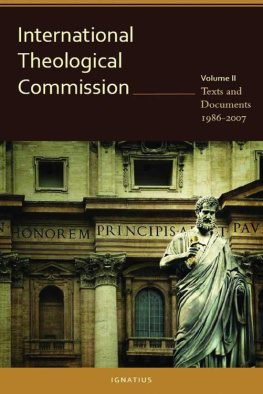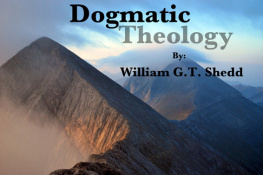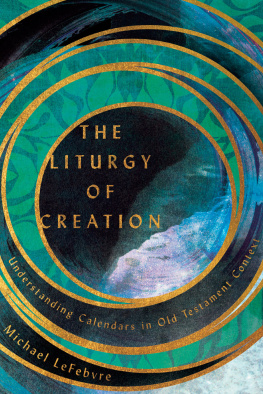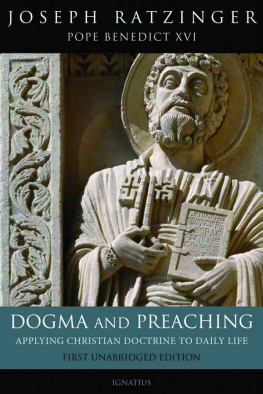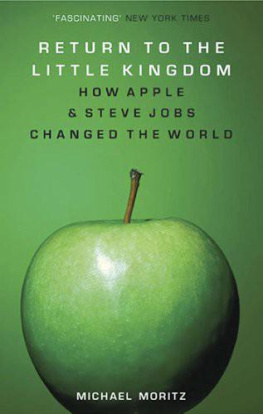Michael Schmaus - Dogma: God and Creation
Here you can read online Michael Schmaus - Dogma: God and Creation full text of the book (entire story) in english for free. Download pdf and epub, get meaning, cover and reviews about this ebook. year: 1972, publisher: Sheed & Ward, genre: Religion. Description of the work, (preface) as well as reviews are available. Best literature library LitArk.com created for fans of good reading and offers a wide selection of genres:
Romance novel
Science fiction
Adventure
Detective
Science
History
Home and family
Prose
Art
Politics
Computer
Non-fiction
Religion
Business
Children
Humor
Choose a favorite category and find really read worthwhile books. Enjoy immersion in the world of imagination, feel the emotions of the characters or learn something new for yourself, make an fascinating discovery.
- Book:Dogma: God and Creation
- Author:
- Publisher:Sheed & Ward
- Genre:
- Year:1972
- Rating:5 / 5
- Favourites:Add to favourites
- Your mark:
- 100
- 1
- 2
- 3
- 4
- 5
Dogma: God and Creation: summary, description and annotation
We offer to read an annotation, description, summary or preface (depends on what the author of the book "Dogma: God and Creation" wrote himself). If you haven't found the necessary information about the book — write in the comments, we will try to find it.
Dogma: God and Creation — read online for free the complete book (whole text) full work
Below is the text of the book, divided by pages. System saving the place of the last page read, allows you to conveniently read the book "Dogma: God and Creation" online for free, without having to search again every time where you left off. Put a bookmark, and you can go to the page where you finished reading at any time.
Font size:
Interval:
Bookmark:
D OGMA
Volumetwo
Godand Creation
MichaelSchmaus
Sheed andWard
London
Copyright 1969 by Sheed &Ward Inc. First published 1969, eighth impression 1990. ISBN 0 7220 7311 9. Allrights reserved.
Nihilobstat Leo J.Steady, Censor.
Imprimatur +Robert F. Joyce, Bishop ofBurlington, 13 January 1969.
Printed and bound in GreatBritain for Sheed & Ward Ltd, 2 Creechurch Lane, London ec3a 5aq by BPCC Wheatons Ltd,Exeter.
The first volume of this series was concerned withthe foundations on which Christian doctrinal theology must rest. With thepresent volume we begin a presentation of the subject matter of theology. Sincethe time of Peter Lombard in the twelfth century it has been customary to beginwith the doctrine of God, as One and Three. However, if we are to bring out theChristocentric structure of the Christian faith we need to take as our point ofdeparture the event of Christ. And yet it is impossible to speak of Jesuswithout speaking of his relationship to God and to the world, since these areessential preconditions for understanding what he said and did and was.Therefore although the basis of this work is Christological, we must begin withsome consideration of God and the world. But it is intended that this shouldtake place in the light of the fact of Jesus Christ. We shall treat of Godhere, then, only insofar as is necessary for comprehension of Jesus Christ theSon of God. So we shall speak of the conceptions of God in the Old Testament,adding only a few observations from the New Testament for the sake ofcompleteness. In particular there is no intention of offering an entiredoctrine of the Trinity at this point. An attempt will be made in that directionin the course of the treatment of the salvific words of Jesus in Volume 3. Nodoubt this procedure involves certain methodological difficulties, but someproblems of this sort are unavoidable no matter where we begin. In view of thevalue of bringing out clearly the Christological center of Christian theology,the present arrangement seems to involve the lesser evil. This volume is to beunderstood, therefore, not so much as a treatment of God and creation inthemselves, but Christologically, that is, as a prelude to Christology in thestrict sense.
Scripturedoes not provide us with a systematic doctrine of God. What it does instead isbear witness to the experience which certain people had of God in certainsituations. In what follows Scripture will be taken as the point of departureand the doctrine of the Church will be considered subsequently as a developmentof what is to be found in Scripture. The reason for treating the matter in thisway is the question of order. Out of the mass of material which Scriptureprovides, the determinative elements have to be selected and the rest arrangedin relationship to them; and then, as far as possible, we must follow theirdevelopment through various stages, so that we see how the doctrinal formulasof the Church arose.
THEMONOTHEISM OF THE OLD TESTAMENT
The foundation of the faith of the Old Testament isthe conviction of the uniqueness of that universal, living, personal power,transcending the world and in no way subject to human manipulation, yet activein human history, which is called by the name "God." This belief thatthere is only one God who transcends the world, a belief which grew up in themidst of a general polytheism, is the basic achievement of the Old Testament.Genesis traces the conviction of the uniqueness of the God Yahweh back to thebeginnings of mankind. The research done in the history of religion confirmsthis scriptural account in that there is no evidence that this belief in theone true God was the product of evolution from primitive conceptions of divineforces (Mircea Eliade). Nevertheless, according to Exodus 6:3 the name Yahwehwas not yet known to Abraham, Isaac or Jacob. They spoke of God as the"highest Lord," El Shaddai. According to Exodus 3:13 the name Yahwehwas not revealed until the time of Moses. We have to assume, then, that in allprobability the period of the patriarchs was characterized rather by anelevated form of monolatry (henotheism). The God known to the patriarchs as thehigh and most powerful Lord gradually came to be identified with Yahweh (Gen.14:18-22). In this way the monolatry of the early period developed intomonotheism in the strict sense. For Moses and the period which followed himYahweh alone is God, not only the God of Israel but God as such.
Yahweh is not a national God. Inhis nature he is superior to the world; his power is not limited, it reachesout beyond the boundaries of his own people. He has dominion over nature also.As the one and only true God Yahweh does not tolerate strange gods. "I amthe Lord your God, who brought you out of the land of Egypt, out of the houseof bondage. You shall have no other gods before me" (Ex. 20:2f.; Deut.5:6f., RSV ). There are noother gods. Yahweh unites in himself everything that is divine, all thequalities which those who believed in myths attributed to their gods. It is offundamental significance that monotheism seems to have arisen not as the resultof speculative reflection but through experience, the experience of the one,all-powerful God. The liberation from slavery in Egypt and the event on Sinaiinvolved the experience of Someone, a Powerunique, superior to the world, andirresistible: it is he who is God. This development of monotheism out ofhistorical experience gave it a practical or ethical character. Again and againthe people are calledby the Yahwist, Samuel, David, Elias and Elijahtodeclare for the one and only God (see especially 1 Kgs. 18:21-40).
As the story of Elias shows, wefind the idea still widespread among the people that a certain power has to be attributed to the divinities of othernations. Hence there is a constant danger of their falling away, and we findelements of uncertainty in these passages where the superiority of the God ofIsrael over other gods is praised. Perhaps this is simply poetical language.However, it is really only in the time of the prophets that the existence ofother divinities besides Yahweh is totally rejected and that of the one trueGod fully affirmed. Examples of this strong and emphatic monotheism of theprophets are Is. 2:8-18; 6:1-3; 10:12; 19:1-3; Jer. 2:11; 5:7; 14:22; 10:9f.;Deut. 4:39; 6:4; 12:39; Is. 40:21-28; 41:29; 43:10f.; 44:8; 45:5,14,21f.; 46:9.
The strict monotheism whichcharacterizes the time of the prophets was a natural development of beliefsalready present at the time of Moses. If it took centuries before the Jewishpeople clearly grasped the fact that there is only one true God, we neverthelessfind from the beginning that the one God is praised: for his power, greaterthan that of the world, irresistible; for his ontic and ethical holiness, hisjustice and his faithfulness to the cove nant. This sense of God's uniquedynamism is of greater weight than any speculative theses about his nature. Theprophets establish the fact that there is only one God in terms of a judicialprocess involving him and the divinities worshipped by the tribes surroundingIsrael. The issue is that these divinities are simply nothing. The disciples ofIsaiah, for example, attribute the following words to God: "Thus says theLord, the King of Israel and his Redeemer, the Lord of Hosts: 'I am the firstand I am the last; besides me there is no God. Who is like me? Let him proclaimit, let him declare and set it forth before me. Who has announced from of oldthe things to come? Let them tell us what is yet to be. Fear not, nor beafraid; have I not told you from of old and declared it? And you are mywitnesses! Is there a God besides me? There is no Rock; I know not any.'"(Is. 44:6-8; similarly Is. 45:5f.; 45:18- 24; Jer. 10:10-16). The question willbe discussed further in the treatment of the names of God.
Font size:
Interval:
Bookmark:
Similar books «Dogma: God and Creation»
Look at similar books to Dogma: God and Creation. We have selected literature similar in name and meaning in the hope of providing readers with more options to find new, interesting, not yet read works.
Discussion, reviews of the book Dogma: God and Creation and just readers' own opinions. Leave your comments, write what you think about the work, its meaning or the main characters. Specify what exactly you liked and what you didn't like, and why you think so.

